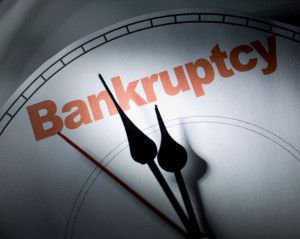Bankruptcy Attorneys in Orlando, Florida
 Bankruptcy is a constitutional solution for people, businesses, and political entities to resolve financial distress. Bankruptcy is simple, humane, and the attorney’s fees are moderate for the results obtained. Typically, your financial problems warrant a bankruptcy liquidation or reorganization long before you meet an attorney. We focus on how to get out of the problem and how to stay out of financial distress. Currently there are four types of bankruptcies available to people as of January 1, 2004. The average individual typically invokes Chapter 7 to wipe out credit card and other unsecured debt. Chapter 13 is used for taxes, non-exempt assets, mortgage problems and student loans. Chapter 11 is a corporate reorganization and Sub V is for small business which our firm has been very active with since its inception in 2020. Chapter 12 is for the family farmer. Chapter 9 is for political entities.
Bankruptcy is a constitutional solution for people, businesses, and political entities to resolve financial distress. Bankruptcy is simple, humane, and the attorney’s fees are moderate for the results obtained. Typically, your financial problems warrant a bankruptcy liquidation or reorganization long before you meet an attorney. We focus on how to get out of the problem and how to stay out of financial distress. Currently there are four types of bankruptcies available to people as of January 1, 2004. The average individual typically invokes Chapter 7 to wipe out credit card and other unsecured debt. Chapter 13 is used for taxes, non-exempt assets, mortgage problems and student loans. Chapter 11 is a corporate reorganization and Sub V is for small business which our firm has been very active with since its inception in 2020. Chapter 12 is for the family farmer. Chapter 9 is for political entities.
What You Keep Through Bankruptcy
Bankruptcy is a federal law but uses Florida State exemptions. For most individuals in Florida, you keep your homestead in which you live, your wages and salaries, cash surrender value of whole life insurance, retirement plans, any workers unemployment or crime victims compensation, $1,000.00 per debtor of personal property and $1,000.00 of equity in one motor vehicle per debtor. If you do not have a homestead property or will not benefit from the homestead, you get an additional wildcard personal property exemption of $4000.00 per debtor.
Guidance Through the Bankruptcy Process
Your case progress should be simple. There is a codebook and a rule book for bankruptcy so it is fairly straight forward. When you decide you cannot pay your debts in a reasonable period of time, you need to decide which attorney to retain for your bankruptcy. Inability to pay debt can be easily calculated and if your debt structure is more than you’re going to make in the next calendar year, it might be time to consider this option.
Your initial consultation is free, and at that time, our office will provide you with a worksheet so you can answer the questions that you will be asked at any time in the future in the bankruptcy process. Our office will prepare the pleadings and your requirement is to appear at one hearing within 40 days of filing with the possibility of additional hearings down the road. The day you file, you get protection from the United States Bankruptcy Court for you and your property by an automatic stay issued by the court.
Typically, within 3-5 days, you will receive an order from the court which lets you know what your obligations are, but in our office, this is followed up by a letter in plain English reminding you of what the court has ordered as well as suggesting that we review everything prior to court. Approximately 30 days into your case, you will go to a 5-10 minute hearing. Approximately 4-6 months later you will receive a discharge in a Chapter 7 or attend a confirmation hearing in a Chapter 13.
Honesty is Key
As always, the truth is the most important thing. So long as you advise your attorney of your true state of affairs in your finances, we can best inform you of how to proceed. If you are going to wipe out a creditor, it might be appropriate to close out any bank accounts with that creditor. Bankruptcy wipes out all of your debts except for fines, support and alimony, taxes, and student loans. However, some debts are based on fraud, false financial statements, embezzlement, D.U.I. claims, malicious injury or damages, and credit abuse are not dis-chargeable.
Chapter 13 Bankruptcy
Chapter 13 is probably my favorite type of bankruptcy. It is an adjustment of debt for individuals with a regular income and Chapter 13 is designed to restructure some of your debts and wipe out or minimize others. We would submit a plan of payments to pay debts either in full or in part using your future income. This is especially an effective weapon for foreclosures, tax problems, or issues that could become a problem in Chapter 7 for Orlando, Florida residents.
A final note, bankruptcy is unlike state court in that the law and the rules are actually on your side for a change. So long as you have not gone out of your way to defraud your creditors, bankruptcy is always a reasonable solution for your problems. Please call our office for a free consultation today!

